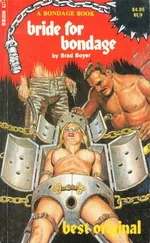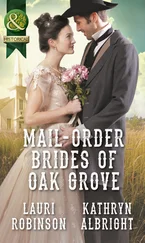* * *
The day did not go well. Kathleen had been a few minutes late in spite of her extra effort to get there on time. The old man who ran the bakery had been terribly upset with her. He scolded and swore and threatened to cut her pay. She knew and he knew that if he did, she’d never hear the end of it from Madam.
Madam! Kathleen inwardly hated the title, though she had never allowed herself the pleasure of hating the person. She was, after all, the only mum she had. She was, after all, the woman whom her father had married two years after the death of her own mother. Kathleen, who had been a child of three when her mother died, had few memories of her own mother, but what she had she cherished.
Madam was the woman who had taken over the home and the man who was Kathleen’s father. The woman who had presented him with a daughter and two sons. Three children that Kathleen herself had tended more than their mother had. Three children who were more than a little spoiled and difficult. But regardless of their faults, three children that Kathleen had quickly learned to love.
The years had not been kind to Kathleen. At seven she had lost the grandmother who had tried in her own limited way to shield and protect her. Also at a very early age she was expected to take on a mammoth portion of the household duties in spite of her thin frame and the limp that had been there since she learned to walk.
“She needs to learn the care of a house,” defended the woman who insisted that Kathleen address her as Madam because of her French heritage.
Kathleen’s father had nodded slowly. He did not interfere with “matters of the household,” but Kathleen thought she read concern in his eyes many times.
So Kathleen had learned to do all the housekeeping chores by the time she was ten. She had also been nursemaid to the little ones, which included getting up in the night, changing their nappies, and taking them to Madam for the nighttime feedings. The limp that had begun as slight became more and more pronounced as she carted heavy babies and full laundry baskets on her tiny hip.
“She’ll never marry,” Madam complained to Kathleen’s father, fretting about the limp.
“Nonsense.” Kathleen was surprised to hear him dare to argue. “Look at her pretty face.”
“But a pretty face won’t be enough. It might turn heads—but they’ll quickly turn away when they see her take a step.”
“I won’t hear such drivel,” Kathleen was surprised to hear her father state, his voice firm with command. Apparently he did still feel he was master in his own home. “Kathleen is intelligent and pretty. One is not—not brushed aside and discredited for—for one small flaw. Such—such drivel. Sure now—I will hear nothing of it again.”
As far as Kathleen knew, Madam never spoke to her father about the limp again, but she did speak to the girl. Over and over, when the two were alone and Kathleen hurried as best she could about the house scrubbing laundry, preparing supper, or tending babies, the woman clicked and pratted over the girl’s “unfortunate condition.” Kathleen burned with the humiliation and unfairness of it.
And then had come the most difficult event of her young life. Her father became sick and, in just two months’ time, had been taken from them. Madam ranted and raved. The man had left her, alone, with five mouths to feed. Kathleen was no longer asked to stay at home and care for the household—though most of those same tasks were still awaiting her when she returned home at nights, tired from a long day in the streets. It was not easy to find the job that Madam sent her off to secure. She was thirteen and frail and basically unskilled except in household chores. She could read and do sums—her father had seen to that.
As Madam had warned again and again, her limp figured into her success in finding employment. Most shopkeepers did not want her as an apprentice. They feared the customers would be unnerved as she moved about to serve them. Nor was she to be accepted as a governess. Only the old man at the bakery had seen her limp as a possible asset. People, bless their souls, often responded to a handicap. With her small, sensitive, and pretty face, combined with the pathetic limp that wasn’t even a carefully practiced put-on, Kathleen might prove to be a good source of income selling his penny rolls and tuppence meat pies.
He had been right. Kathleen sold more wares than any of his other hawkers—though he had never revealed that fact to her. Daily he lived in fear that Kathleen might find a job elsewhere or meet some young man who would wish to make her his wife. So when she arrived a few minutes late after stopping to read the posting, the man was beside himself with worry. What if he lost her? A good share of his daily profits would be lost as well.
When she did appear, he scolded and raged and piled her basket with a larger than usual load of his baked goods.
“And mind ya get right on with it,” he fumed. “Ye’ve already lost half the mornin’ crowd.”
Kathleen struggled under the weight of the load. Silently she went back out into the cold to peddle the breads and pastries.
As she called out to passersby and collected the pennies for the sale, her mind went back again and again to the words in the notice. “Well-secured. Prosperous. Wedded partners.” Would a man from the American frontier be willing to accept a wife with a limp? No, it was unthinkable. But the words still stayed in her mind to haunt her throughout the entire day. She wished—she almost wished—that she were one of the other girls. Like Peg, tall and straight with broad shoulders and a strong back. Or the shorter one named Erma. She had such kind eyes. Such a soft voice. The girl was plump and solid, not scrawny and slight. She would have no trouble pleasing a frontier husband, with her robustness and friendly demeanor.
Then Peg’s words returned to her thinking. “You have a pretty face. They’d be right glad to have you sign up.”
But Peg had not known of her limp.
Just as quickly, the words of Madam came to mind. “But a pretty face won’t be enough. They’ll turn away when they see her take the first step.”
It was true—even a frontier man would never accept the likes of her as a “wedded partner.”
* * *
At the end of the long, difficult day, Kathleen made her way home through the gray streets, the gray buildings now enshrouded with gray fog. The gray gutters were almost hidden by the deeper gray shadows. Her shoulders drooped with weariness. Her steps dragged, accenting her limp.
Undoubtedly the week’s washing was still to be rubbed out on the scrubboard. There was supper to prepare. She did hope that young Bridget had been sent to the shops for meat and vegetables. When the days were damp and chill with fog, the younger girl often refused to go.
Kathleen loved Bridget in spite of her willfulness. There was no way that she could have withheld her love. The girl looked like their father. Kathleen, he had told her over and over before his untimely death, was the picture of her mother. So Kathleen mothered Bridget, even as Madam spoiled her. Kathleen did so want the young girl to grow up to be a credit to their father. To that end, she pleaded and scolded and fussed at her young half sister, teaching her manners, letters, and sums. For the most part the girls got along well—unless Madam interfered and chided Kathleen for “demanding” too much of one “so young and delicate.”
Kathleen reached the small cottage and pushed open the heavy iron gate with her shoulder. The gate growled and whined on its rusty hinges.
“And if Father were here, he would use some oil,” Kathleen said to herself. “It won’t be long until it’ll refuse to budge.”
Читать дальше












